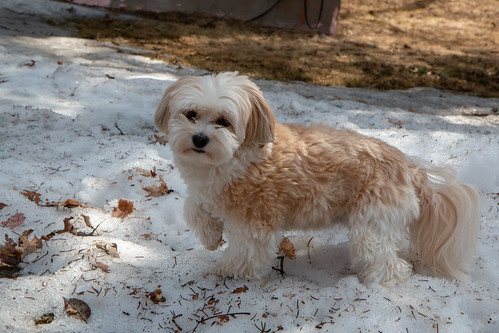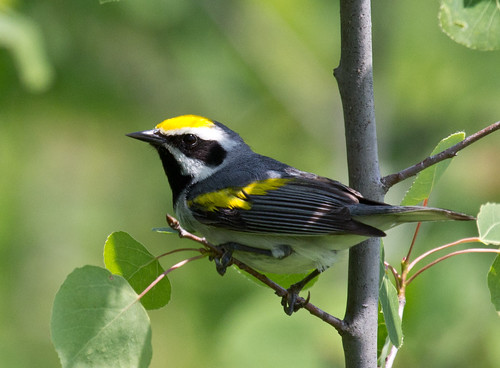After the program, I drove to Port Wing, Wisconsin, where I was to spend the night. On the way down County A from Iron River, just as I was getting to Town Line Road, a wolf crossed in front of me. I see and hear coyotes way more often than wolves, but any time I see either it’s exciting. I thought about how lucky I am to live where I do, where most people really do seem to understand the value of wildness and of wildlife.
That night I got to stay by myself in a house right next to a wetland. I’m not quite as resilient as I was when I was younger, so I fell asleep almost immediately and didn’t wake up until just after sunrise. That meant I didn’t get any recordings of night or pre-dawn sounds, though robins were singing away.
The sun was still rosy when I looked out at the wetland without my eyeglasses. And what to my wondering eyes should chance to pass by but a big gray shape that looked for all the world like a cat with a short tail and pointy ears. Not only was I not wearing my glasses—I also didn’t have my binoculars right there. I couldn’t trust that it would still be there if I ran and got them, so I kept watch as it moved steadily and deliberately over the snow-covered ice and disappeared into the shrubs and weeds along the edge of the marsh at Washington Avenue. I was certain it was a bobcat, but despite how close as it was, to my nearsighted eyes it was little more than an evocative shape. Once it was gone, I went for my binoculars and looked out again. I didn’t know what I’d see this time, but I was certain I’d blown my chance of a close look at the bobcat. But suddenly out it came, now headed the other way. And if the full side view wasn’t enough, it stopped and turned its head to face directly at me. I hadn’t brought my camera, but those eerily haunting eyes burned themselves into my memory. I’ve spent a lot of my lifetime outdoors in good habitat, yet this was the first wild bobcat I’ve ever seen. I was thrilled.
 |
| BOBCAT!! (A reenactment. I didn't have my camera along, but my dog Pip helped me recreate the moment.) |
We humans no longer live on the edge of vast wilderness. The tiny dregs of wildness that we manage to hold fast to survive only as long as we allow it to. I felt proud that I’d helped another fragile little place, the North Pikes Creek Wetland up in Chequamegon Bay, the night before, and hope that there will always remain among us humans at least a handful of people willing to do what they can to protect what little wild land remains. We owe it to the human spirit and soul as well as to the creatures with whom we share this lovely planet.
